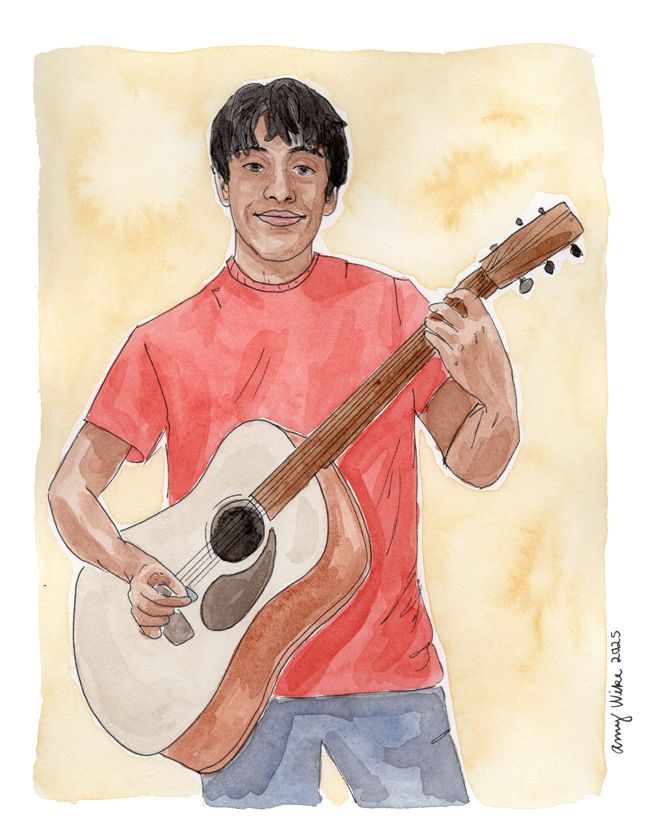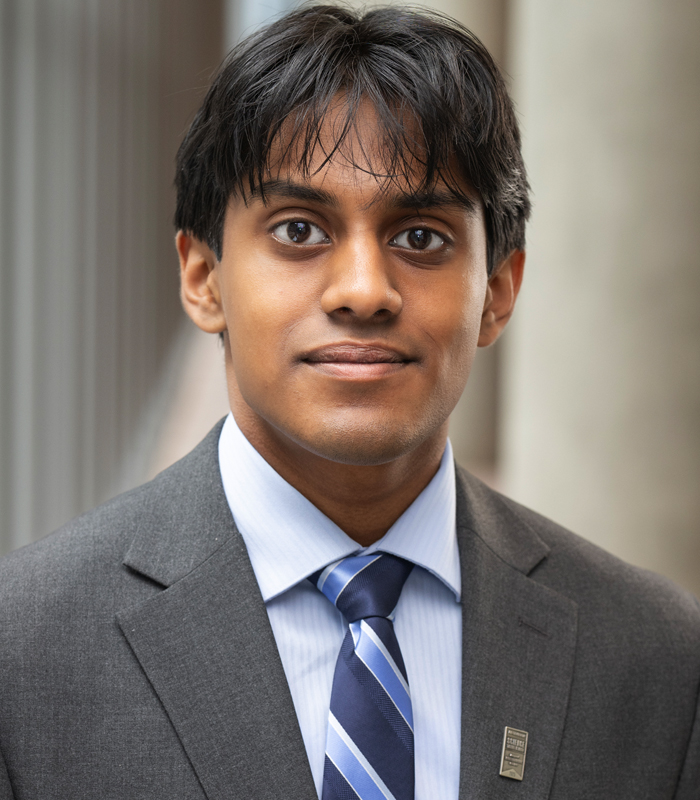Development of a Novel Finite-Nuclear Model With the Use of Numeric Atom-Centered Orbitals
Thanush made mathematical models of electron movements more accurate.
View Poster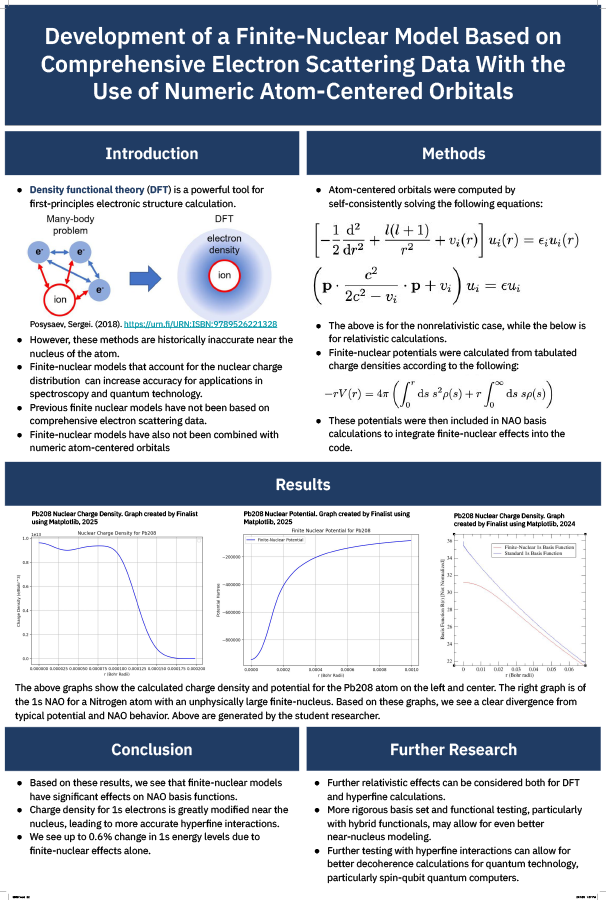
Thanush Patlolla, 17, of Cary, solved a major problem plaguing quantum computing for his Regeneron Science Talent Search physics project. Quantum computing methods depend on predicting exactly how quantum particles respond to one another. All the particles in a quantum system affect each other, so measuring the energy of any one particle can cause unpredictable changes in another.
In his project, Thanush approximated the density of electrons using a finite nuclear model. This could help physicists avoid extensive computation to know how the nucleus affects electrons. Using a mathematical strategy called a density function, Thanush used the model to map electron distribution in a nuclear simulation. The map increased the accuracy of energy distribution predictions by 0.6%. This is an essential step toward effective quantum computing, which will rely on measuring quantum particles with near-perfect accuracy.
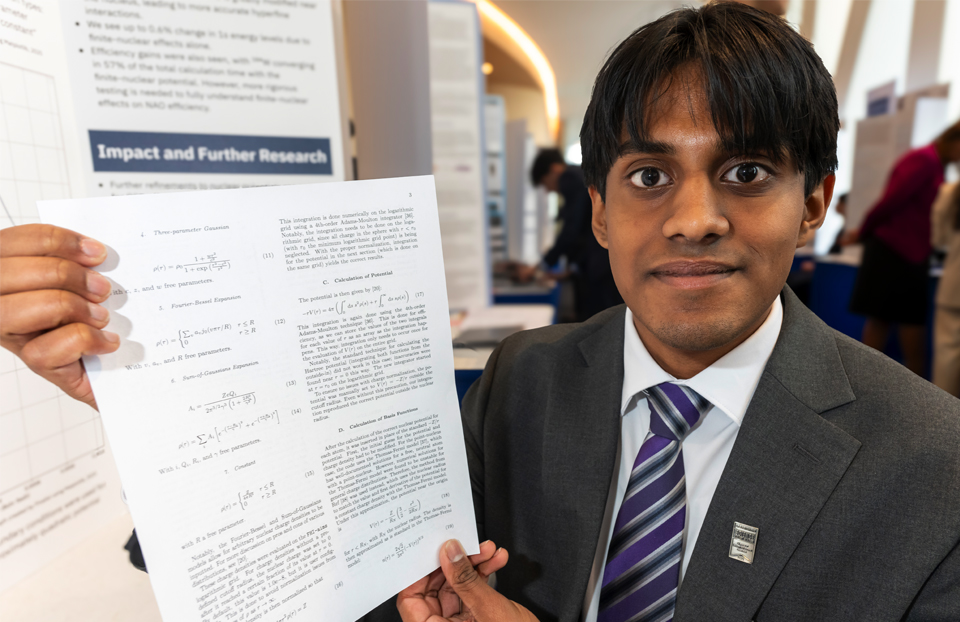
Thanush, son of Bhasker Patlolla and Bhavana Solipuram, attends Enloe Magnet High School. Thanush is captain of the varsity Science Olympiad team.
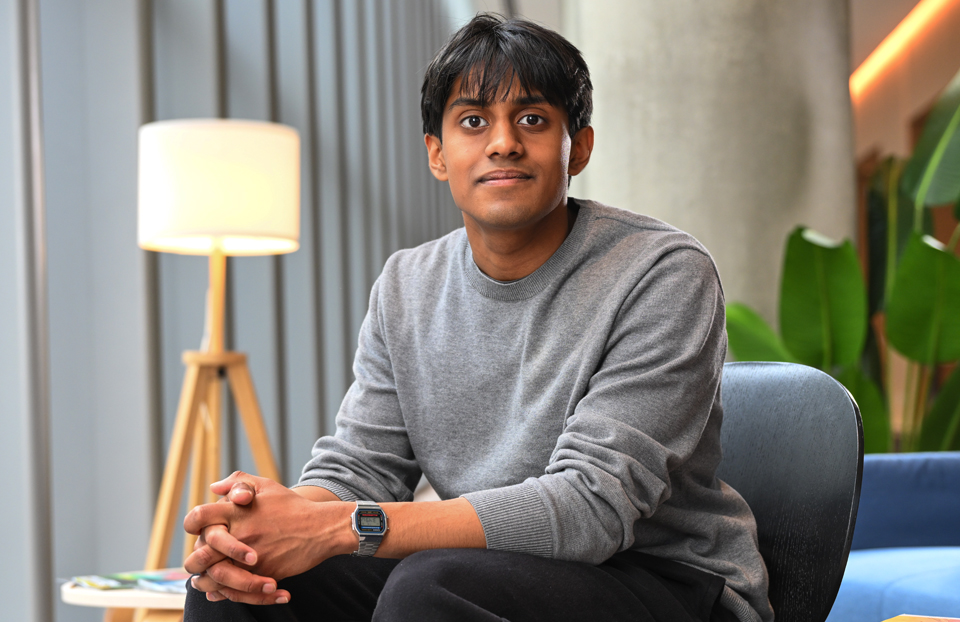
Beyond the Project
Thanush organizes competitions as the founder and president of the physics club.
FUN FACTS: Thanush plays guitar with a competitive youth jazz band. He enjoys taking his electronic music equipment apart. He swaps out parts for antique radio electronics to test their effects.
